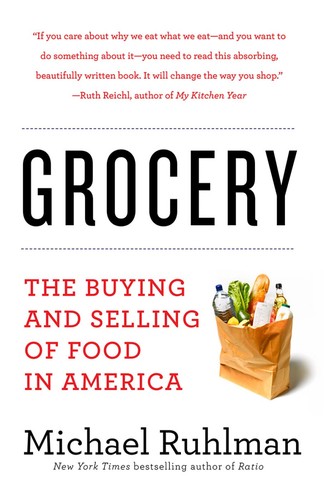eBook
English language
Published Dec. 24, 2017 by Abrams, Inc..

eBook
English language
Published Dec. 24, 2017 by Abrams, Inc..
Michael Ruhlman offers incisive commentary on America's relationship with its food and investigates the overlooked source of so much of it--the grocery store. In a culture obsessed with food--how it looks, what it tastes like, where it comes from, what is good for us--there are often more questions than answers. Ruhlman proposes that the best practices for consuming wisely could be hiding in plain sight--in the aisles of your local supermarket. Using the human story of the family-run Midwestern chain Heinen's as an anchor to this journalistic narrative, he dives into the mysterious world of supermarkets and the ways in which we produce, consume, and distribute food. Grocery examines how rapidly supermarkets--and our food and culture--have changed since the days of your friendly neighborhood grocer. But rather than waxing nostalgic for the age of mom-and-pop shops, Ruhlman seeks to understand how our food needs have shifted since the mid-twentieth century, …
Michael Ruhlman offers incisive commentary on America's relationship with its food and investigates the overlooked source of so much of it--the grocery store. In a culture obsessed with food--how it looks, what it tastes like, where it comes from, what is good for us--there are often more questions than answers. Ruhlman proposes that the best practices for consuming wisely could be hiding in plain sight--in the aisles of your local supermarket. Using the human story of the family-run Midwestern chain Heinen's as an anchor to this journalistic narrative, he dives into the mysterious world of supermarkets and the ways in which we produce, consume, and distribute food. Grocery examines how rapidly supermarkets--and our food and culture--have changed since the days of your friendly neighborhood grocer. But rather than waxing nostalgic for the age of mom-and-pop shops, Ruhlman seeks to understand how our food needs have shifted since the mid-twentieth century, and how these needs mirror our cultural ones.